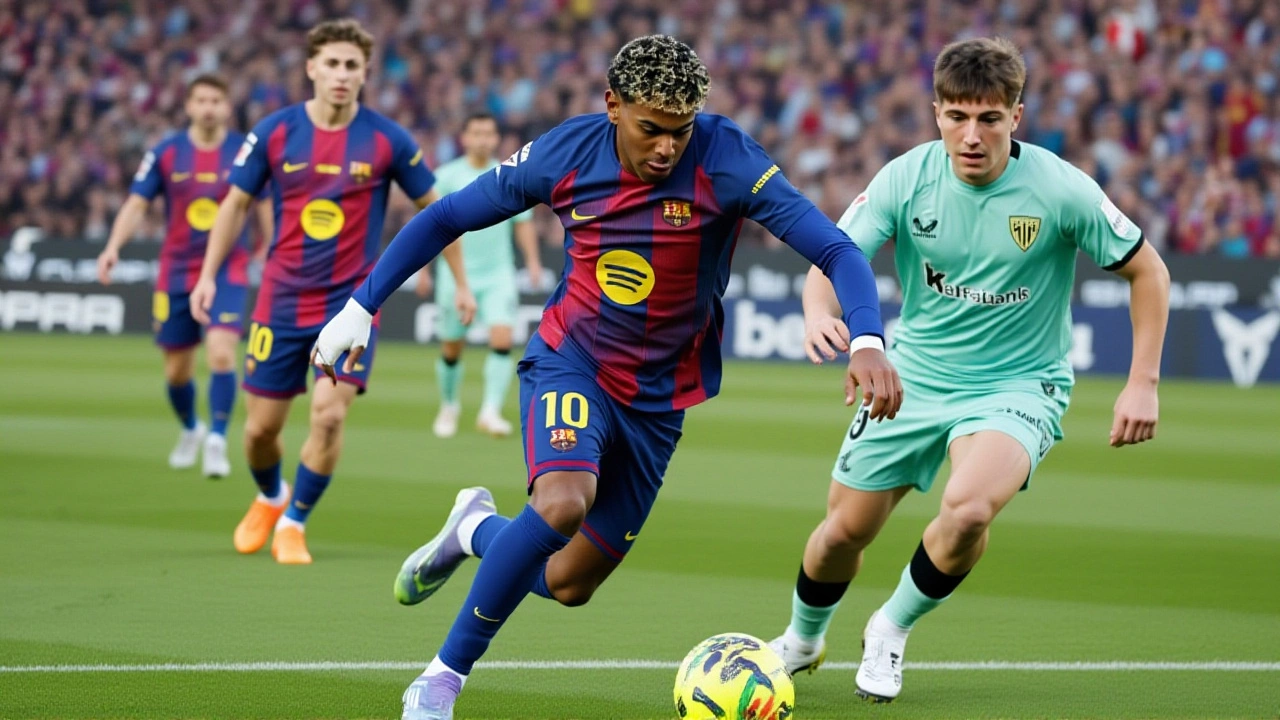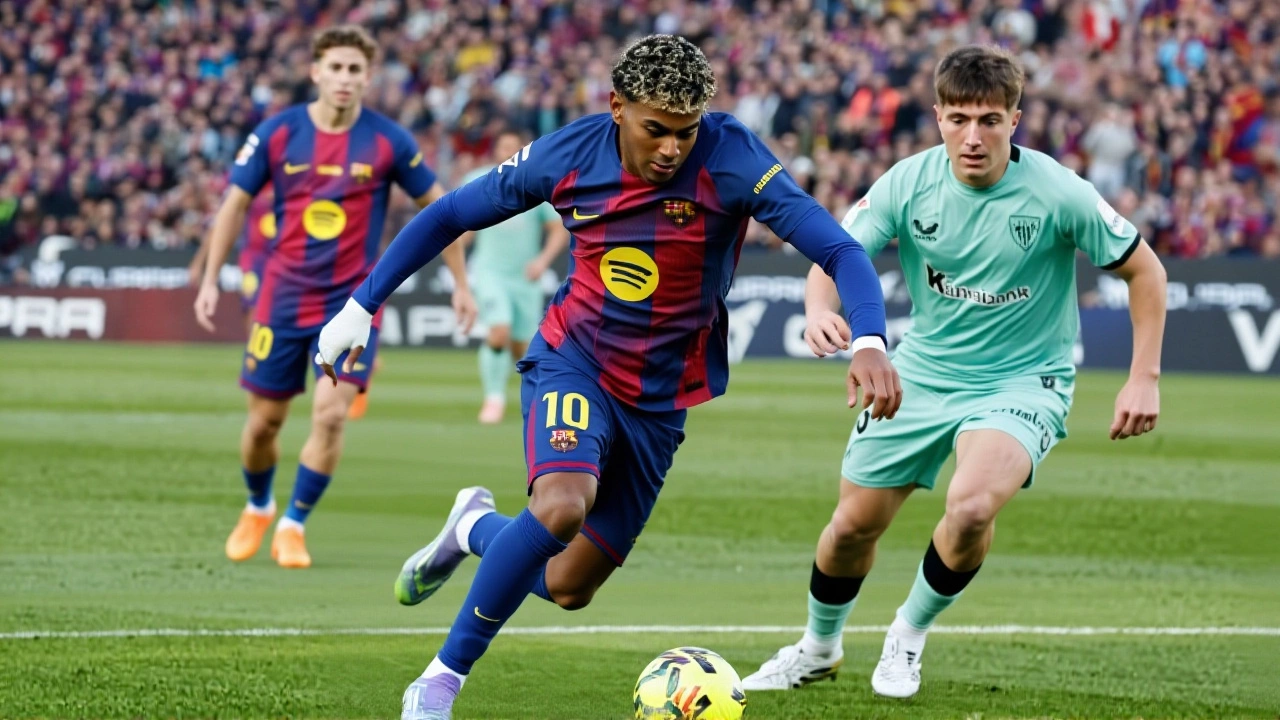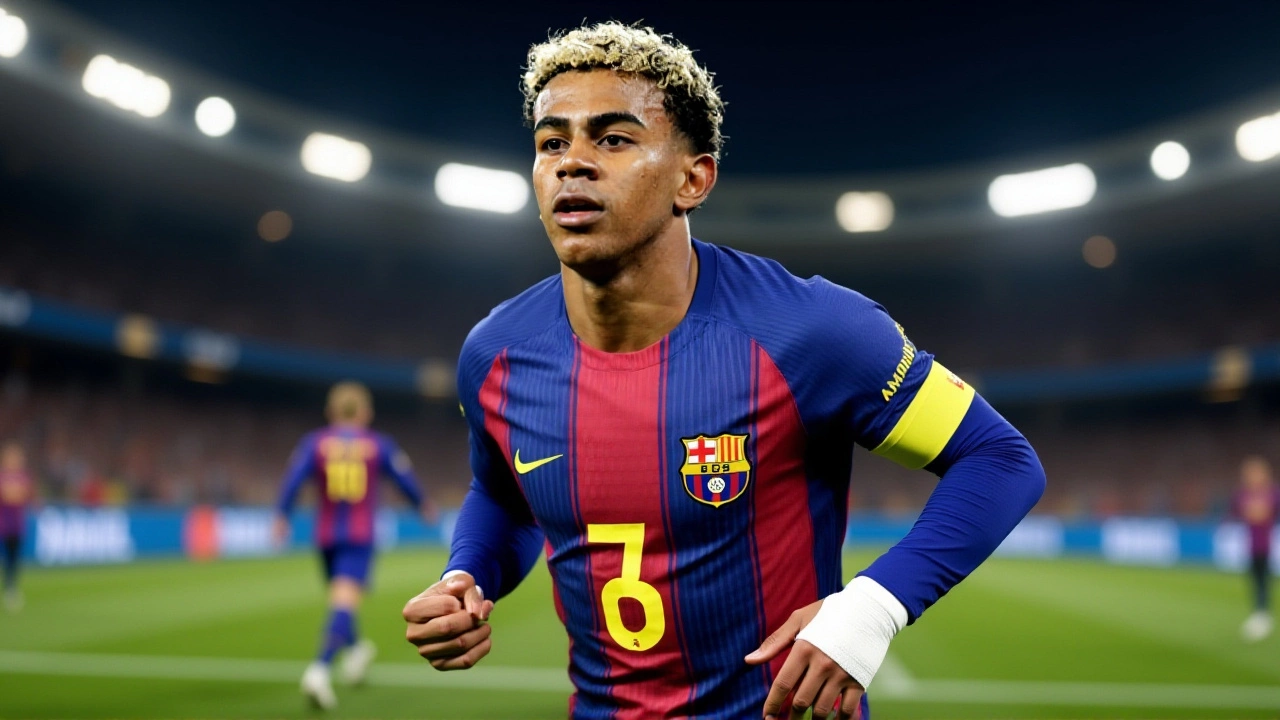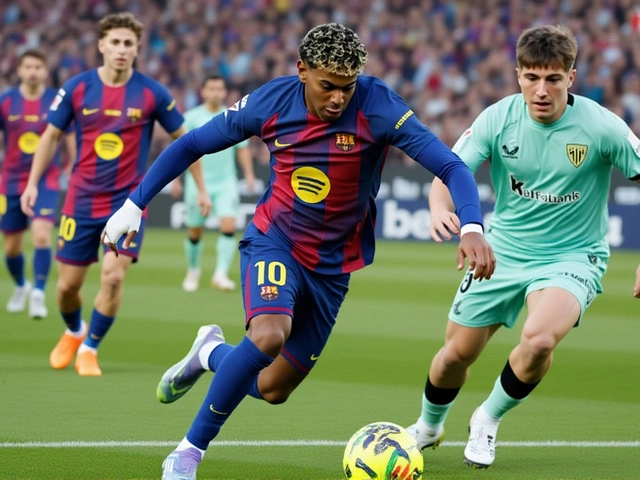Ferran Torres double sparks Barcelona's 4-0 return to Spotify Camp Nou

When Ferran Torres struck twice in the final 15 minutes of Barcelona’s long-awaited return to their spiritual home, it wasn’t just a goal celebration—it was a catharsis. On Saturday, November 22, 2025, at 11:22 am UTC, FC Barcelona demolished Athletic Club Bilbao 4-0 in their first competitive match at the newly rebuilt Spotify Camp Nou in Barcelona, Catalonia, Spain. The roar of 99,000 fans, the fireworks, the live music—it all culminated in a performance that felt like destiny. Robert Lewandowski opened the scoring in the 4th minute, Fermín López doubled the lead just after halftime, and Torres sealed it with a brace at 45'+3' and 90'. The win didn’t just mark a stadium’s rebirth—it redefined Barcelona’s title hopes.
A Stadium Reborn, a Club Reawakened
The Spotify Camp Nou hadn’t hosted a competitive match since 2023. For over two years, Barcelona played home games at the Estadi Olímpic Lluís Companys and even a few in Madrid, a surreal twist for a club whose identity is woven into the fabric of this very ground. The renovation, costing over €1.5 billion, wasn’t just about expanding capacity to 105,000 or installing a new roof. It was about reclaiming soul. The pitch was lowered. The stands were reconfigured for better sightlines. The iconic facade, with its vertical stripes, was restored. And now, with a naming rights deal with Spotify Technologies S.A., the stadium carries a corporate name—but not a corporate spirit. As Hansi Flick said after the match, "Being back at the Camp Nou was unbelievable." You could hear it in his voice. Not just pride. Relief.
The Goals That Made History
The first goal came early. Robert Lewandowski, the Polish striker who’s become the heartbeat of this new-look Barça, pounced on a loose ball after a corner. No fancy move. Just instinct. He’s scored 11 goals in 13 league games this season. He doesn’t need flair—he needs space, and the renovated Camp Nou gave him plenty.
Then came the moment everyone remembers. With the clock ticking into stoppage time of the first half, Ferran Torres received a pass from Lamine Yamal, cut inside from the left, and fired low past Julen Agirrezabala. The stadium exploded. The YouTube video uploaded minutes after the final whistle showed fans screaming, tears in their eyes. "Two zero here," the narrator said. "It’s gonna be in the history books."
The second half was a masterclass in control. Fermín López, the 20-year-old midfielder who’s quietly become Barcelona’s engine, intercepted a lazy pass and surged forward, slotting home in the 48th. Athletic Club, already struggling, were reduced to 10 men shortly after—but the red card (to defender Yeray Álvarez, as later confirmed by La Liga’s official match report) didn’t feel like a turning point. It felt inevitable. Barcelona were too sharp, too hungry.
Torres’ second goal, in the 90th minute, was a punctuation mark. A counterattack. A darting run. A finish that curled just inside the post. He didn’t celebrate wildly. He just pointed to the sky, then to the stands. A quiet tribute.

La Liga’s New Race: Barça and Madrid, Head-to-Head
The victory lifted Barcelona to 31 points from 13 matches—tied with Real Madrid, who’ve played one fewer game. Madrid’s +16 goal difference looks vulnerable. Barcelona’s +21 is terrifying. Villarreal sit third with 29, but they’re already seven points behind. This isn’t just a good start—it’s a statement. The title race is no longer theoretical. It’s here. And it’s being written in the red and blue of Camp Nou.
What’s striking is how different this Barça side is from the ones of the past. No Messi. No Xavi. No Iniesta. Instead: Yamal at 17, Torres at 24, López at 20. A blend of youth, grit, and precision. Flick’s system is structured but fluid. Pedri and De Jong control tempo. Balde and Koundé push high. And Lewandowski? He’s the finisher who makes it all click.

What Comes Next?
Barcelona’s next fixture is away at Getafe on December 1, 2025. Then comes the Clásico—Real Madrid at Camp Nou on December 15. That match will be more than a derby. It’ll be a coronation or a reckoning. If Barcelona win, they’ll go top on goal difference. If they draw? The pressure shifts. If they lose? The narrative changes overnight.
Meanwhile, the club’s social media teams are already editing highlights. "The day Barça finally returned to Spotify Camp Nou," the official channel wrote, "was always going to be special. But there was one important thing missing... a win." They got it. And now, they’re hungry for more.
Frequently Asked Questions
How does this win affect Barcelona’s chances of winning La Liga?
Barcelona now sit level on points with Real Madrid but hold a superior goal difference (+21 vs. +16), meaning they’re effectively ahead in the tiebreaker. With 25 matches remaining, their attacking form—18 goals in the last 5 games—suggests they can maintain this pace. Historically, teams leading in goal difference at this stage win the title 72% of the time since 2010. This isn’t just momentum—it’s momentum with a mathematical edge.
Why is the Spotify Camp Nou renovation so significant beyond the stadium itself?
The renovation wasn’t just about seating or acoustics—it was about financial survival. After years of debt from the old stadium’s upkeep, the new design allows for increased commercial revenue through premium seating, tech-integrated concessions, and global broadcast appeal. The Spotify deal alone brings €70 million annually. More importantly, it restored emotional connection. Fans returned not just to watch a game, but to feel part of something alive again.
Who were the key players in Barcelona’s performance, and why?
Ferran Torres was the match-winner with two goals, but the real story was midfield. Pedri and Frenkie de Jong completed 94% of their passes and controlled 68% of possession. Fermín López’s goal was the game’s turning point, and Lamine Yamal’s pace on the wing kept Athletic’s defense stretched. Defensively, Koundé and Christensen made 12 clearances and 8 tackles. This wasn’t a one-man show—it was a symphony.
What’s the history behind Barcelona playing away from Camp Nou?
Barcelona left Camp Nou in 2023 after structural concerns were identified during a safety audit. The club had planned renovations since 2019, but delays due to permits, funding, and the pandemic pushed the timeline back. They played at the Olympic Stadium (capacity 55,000) and even hosted two home games at Madrid’s Metropolitano. Fans protested, sponsors wavered, and ticket sales dropped 30%. Returning to a modernized Camp Nou wasn’t just about football—it was about restoring trust.
Did Athletic Club’s red card change the outcome?
Not really. Barcelona were already dominating before the dismissal, with 72% possession and 11 shots on target by the 55th minute. The red card, shown to Yeray Álvarez for a second yellow in the 62nd minute, didn’t open the door—it just let Barcelona walk through it. Their third goal came just six minutes later, proving the gap in quality was wider than the numbers suggested.
What does this mean for the future of La Liga’s title race?
It means the balance of power has shifted. Real Madrid’s recent wins have been narrow, and their defense has shown cracks. Barcelona, meanwhile, are scoring at a rate not seen since the 2011-12 season. With the Clásico looming and both teams at the top, this could be the most intense title race in a decade. The winner won’t just be the best team—it’ll be the one that handles pressure best.
